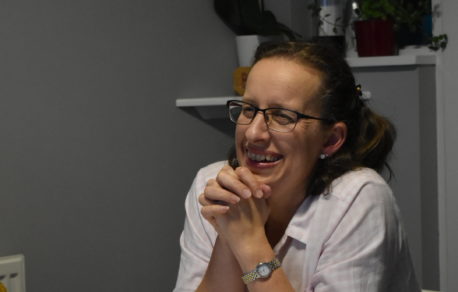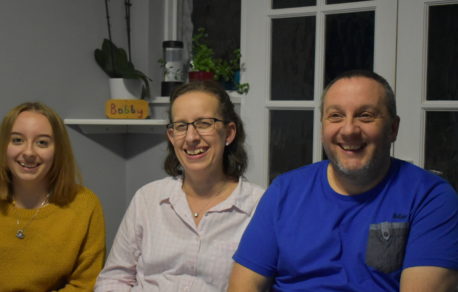
The importance of seeking help – Alan’s story
Alan Monelle is a telecoms engineer. At the age of 51, he was unexpectedly diagnosed with prostate cancer. In his blog, he talks about his cancer diagnosis and the importance of seeking help early.
At the age of 40, after my dad had had prostate cancer, I was advised to get PSA blood checks (a blood test that measures the amount of prostate specific antigen in your blood) regularly. I was checked at age 40 and 45. I had another test at 51, not expecting anything untoward. Unfortunately, it revealed my levels were higher than normal.
I went to the hospital for an examination and further tests which revealed that I had prostate cancer. It came as a shock because I was relatively young and healthy at the time. The diagnosis was obviously serious, but it was unknown just how much.
Over the following days, I had the unenviable task of telling my two daughters and close family of my diagnosis. Although it was difficult, I felt that they needed to hear it from me rather than from someone else. This came at a time when I was rebuilding after being made redundant and it was a significant blow. I’d recently started a new job with great prospects. But it was critically important that I faced up to reality and focused on getting back to good health. I had to give up my job to do this.
Focusing on treatment
The results of my hospital tests confirmed that I did indeed have prostate cancer. Once again, I was reminded of how important and lifesaving getting checked was. Because my cancer was at an early stage, it was treatable. Doctors explained the different types of treatments available to me. And from these choices, I decided to have surgery.
Less than two months after my diagnosis, I had my surgery, which went well. A few months after, I contracted a rare blood infection which left me with severe inflammation, causing mobility issues. But this was treated, and I’m now free from any infection and the inflammation has gone. I no longer have any mobility issues and have a new job working for a charity, which I enjoy immensely.
Seeking help saves lives
I cannot stress enough how important it is for men to seek help early, if they’re concerned about any aspects of their health. They should attend the annual check-ups and have the necessary tests. Men struggle to seek help – some believe that it’s a sign of weakness. I believe that it is not a sign of weakness, but a sign of strength.
I thought it was important to tell male friends and family of my diagnosis and the importance of getting checked themselves. In fact, I probably bored people with my badgering on the subject! But I also felt proud to be able to share my situation in the hope it would remind others to get checked regularly.
My advice to men is to not keep any concerns regarding their health to themselves and to speak to someone about it. This decision can have a huge effect on so many people’s lives, not just your own. As with any illness, the earlier the diagnosis, the earlier the treatment, the greater the chance of recovery. I am living proof of this.
Our Keep Talking campaign highlights the importance of men talking about their health concerns and getting the right support in time. If you’re worried about something, now’s the time to have chat with someone — a trusted friend or family member or your doctor.



